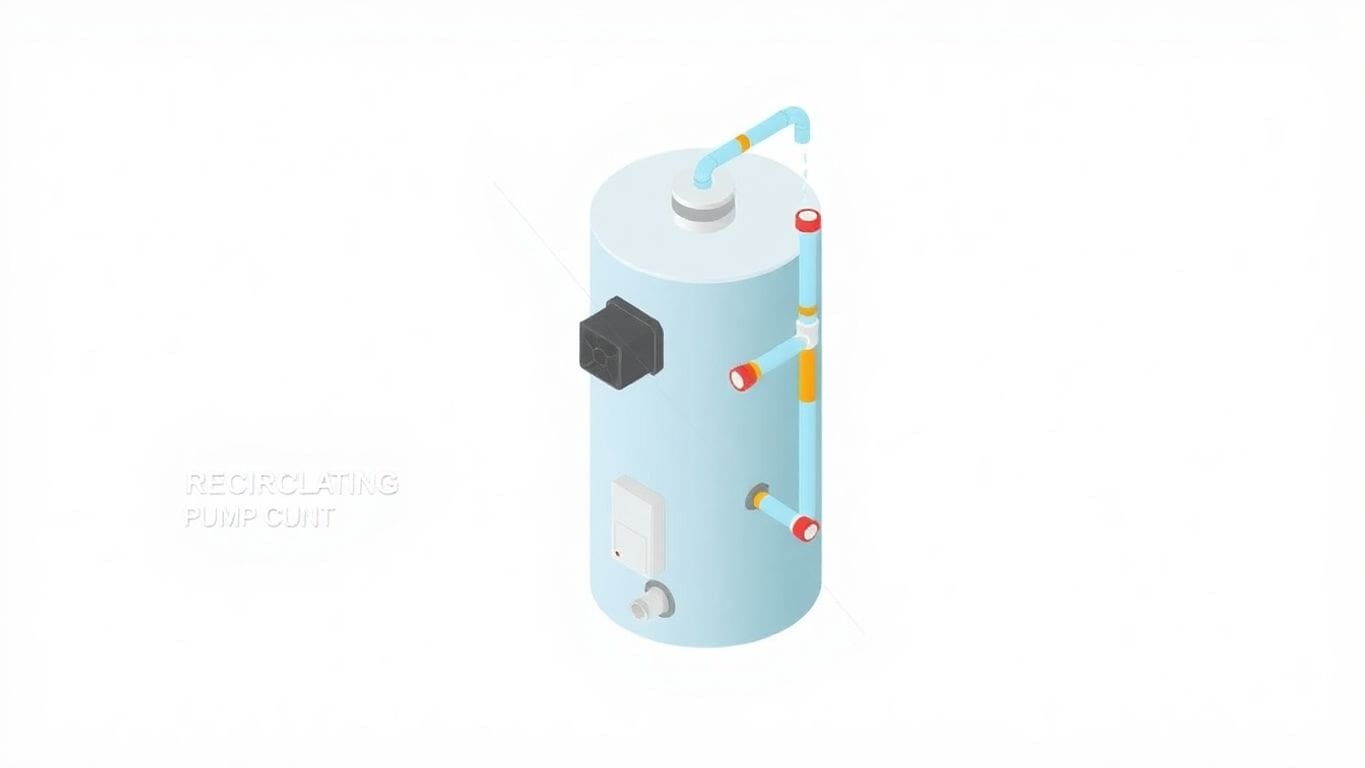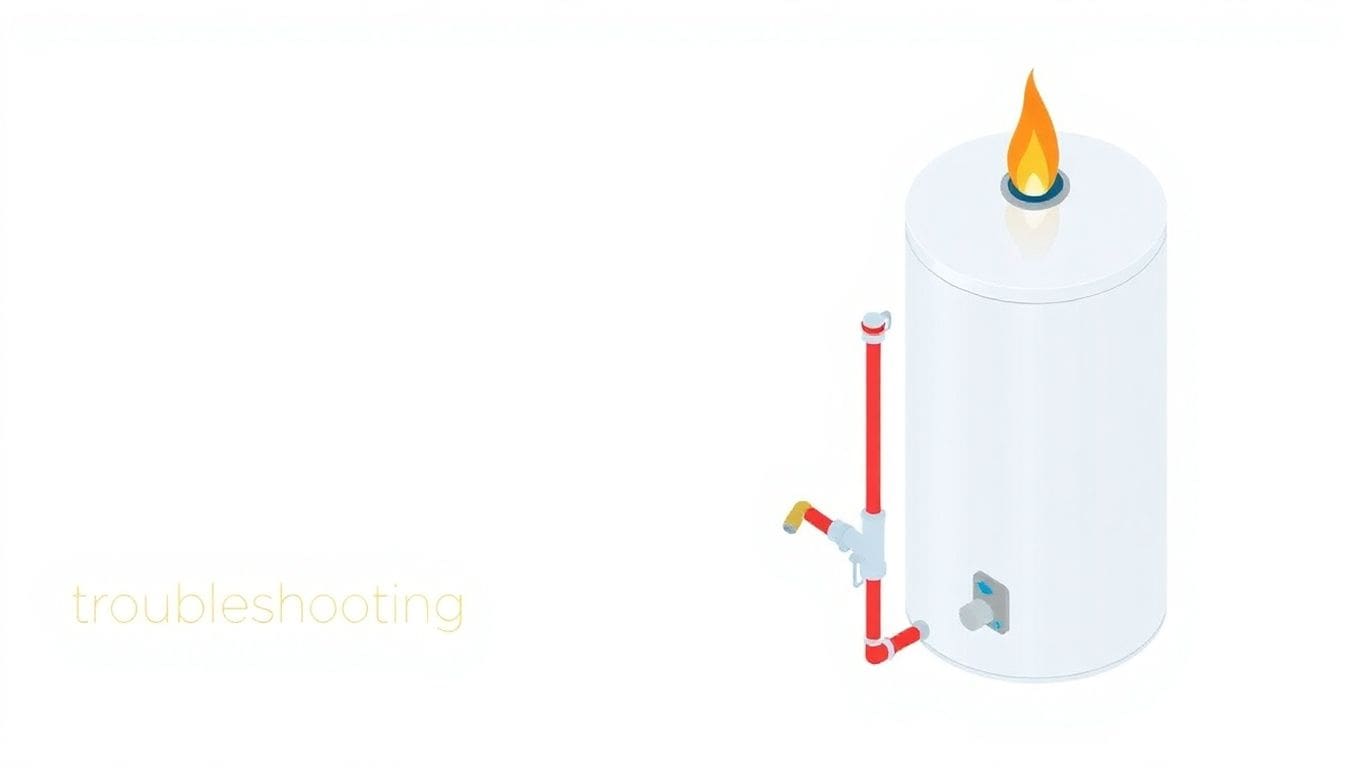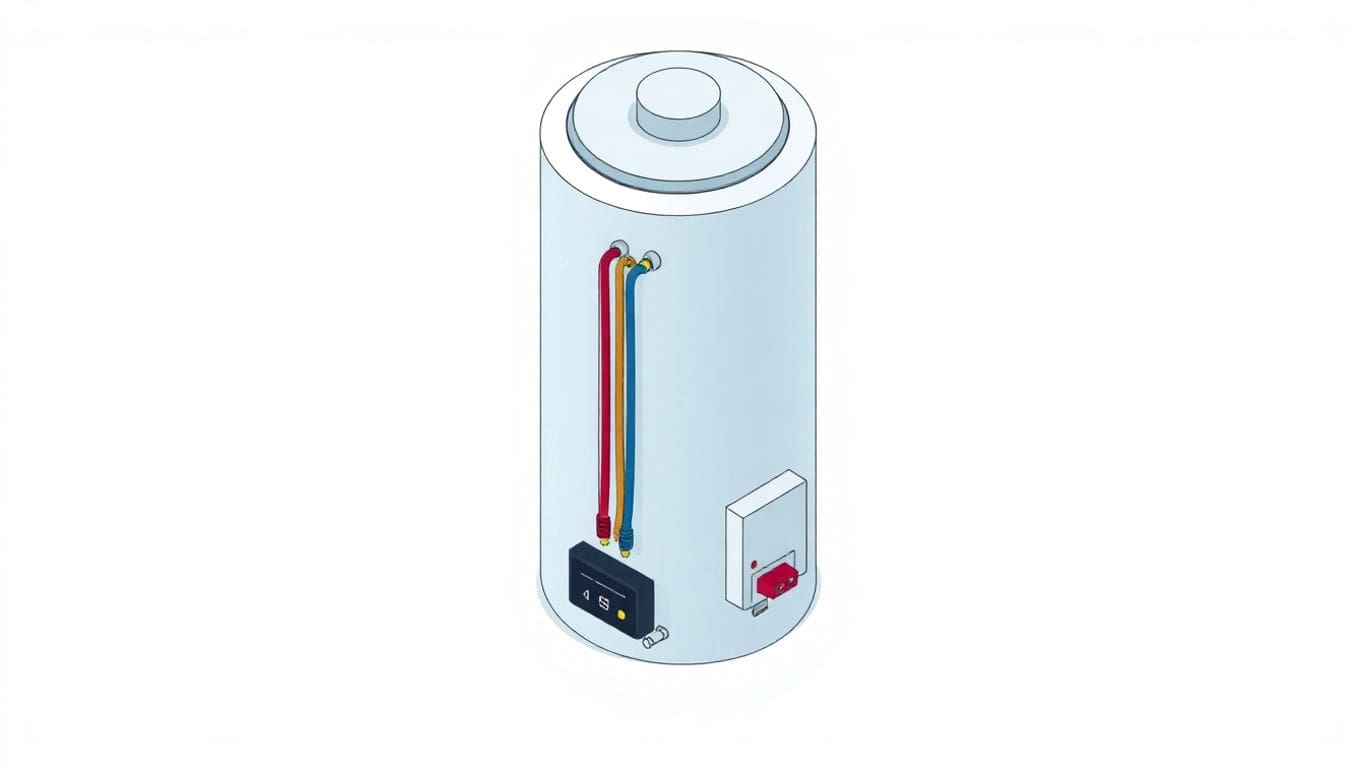
If you’ve noticed your tankless water heater leaking after a freeze, you’re not alone. This issue can arise due to several reasons, especially after cold weather conditions. In this guide, we’ll explore the causes of these leaks, what immediate steps to take, and how to fix the problem effectively. By understanding these aspects, you can ensure your water heater operates smoothly and avoid future issues.
When winter hits, your tankless water heater can face some challenges. Leaks can happen after a freeze, and it’s important to know why. Here are some common reasons:
Freezing temperatures can cause water inside pipes to expand. This expansion can lead to:
To find where the leak is coming from, check these areas:
Remember, finding the source of a leak early can save you from bigger problems later.
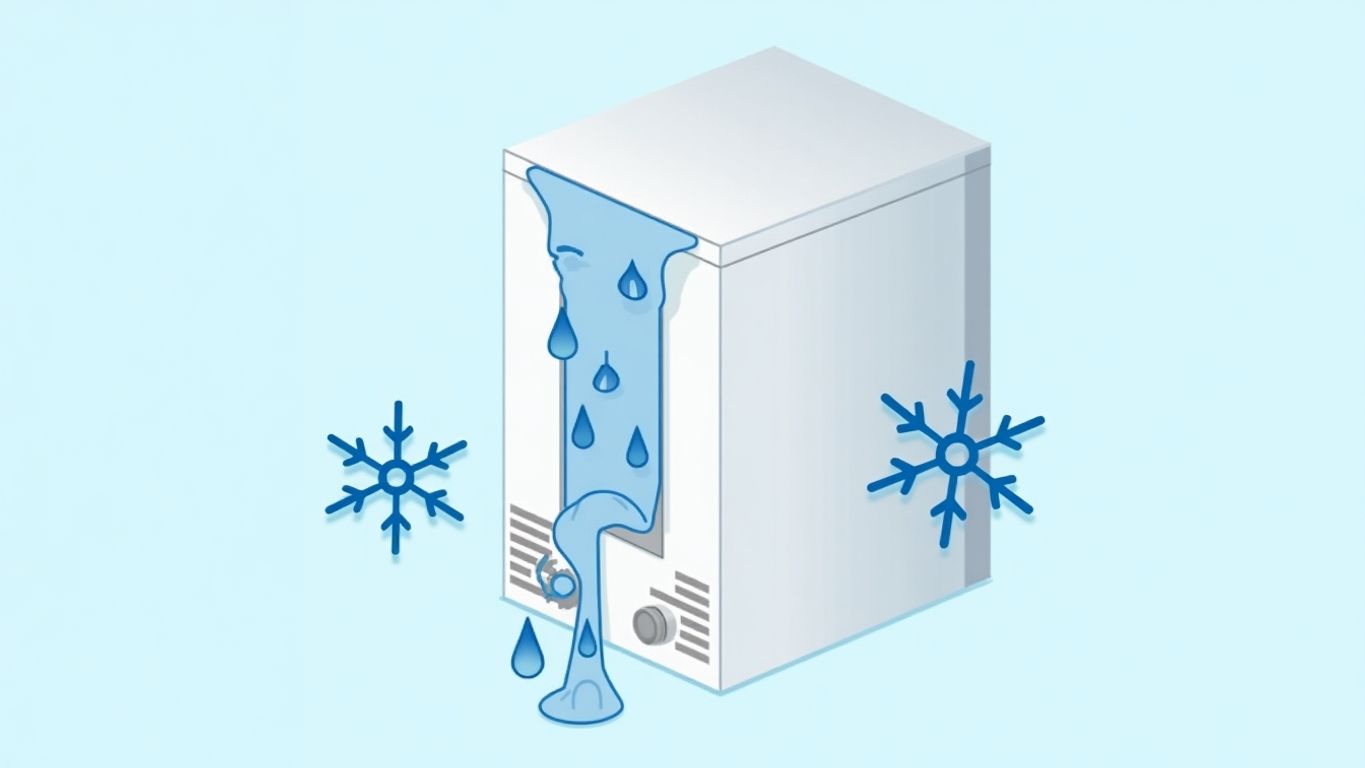
If you find a leak, the first thing to do is turn off the water supply. This helps prevent more water from spilling and causing damage. You can usually find the shut-off valve near the heater.
Next, you should power down the heater. If your heater runs on electricity, switch off the circuit breaker. If it uses gas, turn off the gas supply. This is important for your safety.
After you’ve turned off the water and power, take a moment to assess the situation. Look for visible signs of damage. Check for loose connections or any corrosion. If the leak is small, you might be able to fix it yourself. However, if it’s large or you’re unsure, it’s best to call a professional.
Remember, acting quickly can save you from bigger problems later on!
Start by looking at your tankless water heater. Check for any visible signs of damage. Look for cracks, dents, or rust. If you see any of these, it could mean trouble.
Next, check the connections and fittings. Make sure everything is tight. Loose connections can cause leaks. If you find any loose parts, tighten them carefully.
Corrosion is another big issue. It can happen even if your water isn’t hard. Look for any signs of rust on pipes or fittings. If you see rust, it might be time to replace those parts.
Regular checks can help you catch problems early. This can save you from bigger issues later on.
Remember, if your water heater is 20 years old, it might be time for an upgrade. Keeping an eye on these signs can help you maintain your heater and avoid leaks.
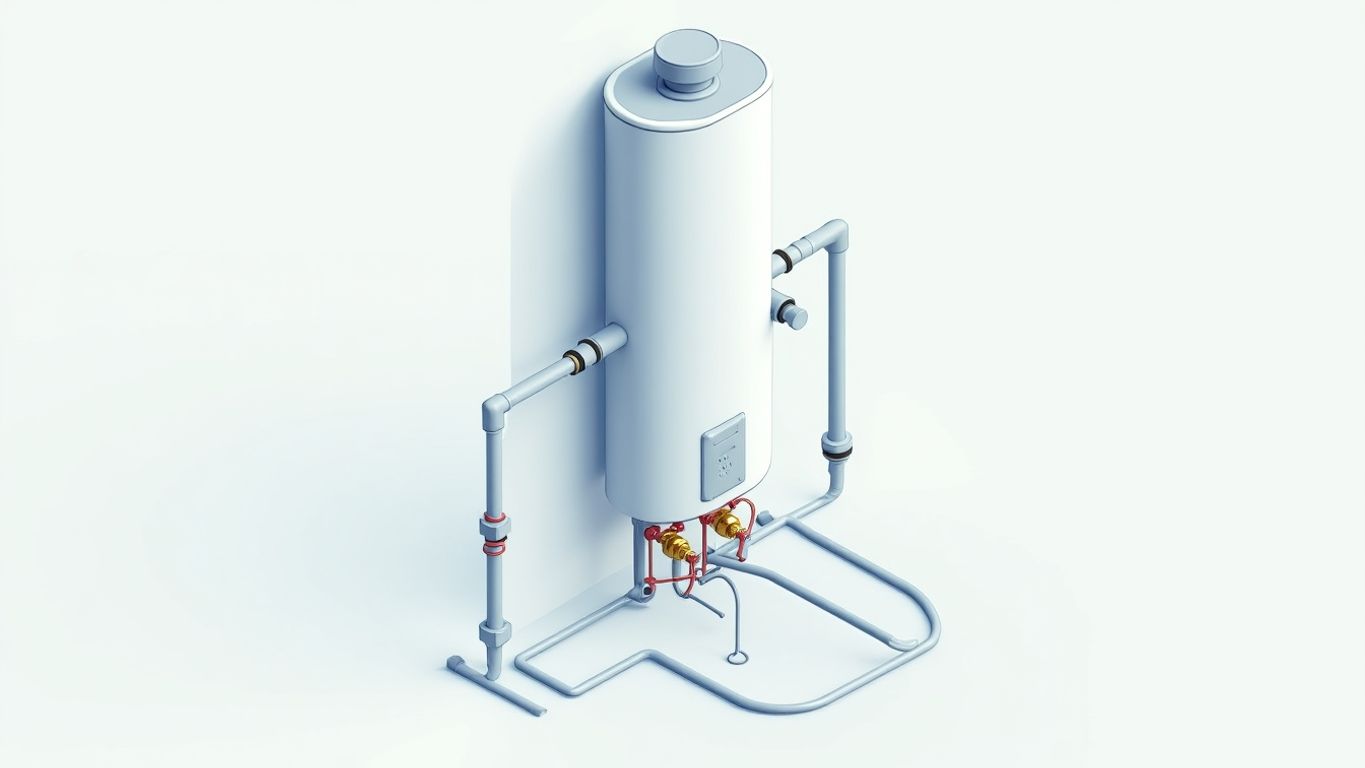
When your tankless water heater leaks, it can be a big problem. Here are some simple ways to fix common leak issues.
Sometimes, what looks like a leak is just condensation. Here’s how to check:
Remember, fixing leaks quickly can save you from bigger problems later.
By following these steps, you can fix many common leak issues with your tankless water heater. If the problem continues, it might be time to call a professional.
To keep your tankless water heater safe, it’s important to insulate the pipes and valves. This helps prevent freezing during cold weather. You can use foam pipe insulation or heat tape. Make sure to cover all exposed pipes.
Heat tape is a great tool to protect your water heater. It wraps around the pipes and keeps them warm. This is especially useful in very cold areas. Just follow the instructions carefully when applying it.
Regular maintenance can help you avoid leaks. Here are some tips:
Taking these steps can save you from costly repairs later. Regular checks can keep your water heater running smoothly.
Sometimes, fixing a leaking tankless water heater can be tricky. Knowing when to call a professional can save you time and trouble. Here are some signs that you should reach out for help:
Remember, it’s always better to be safe than sorry. If you’re unsure about fixing the leak yourself, don’t hesitate to call a professional.
When you find a small leak in your tankless water heater, there are some simple steps you can take to fix it yourself. Here’s how:
Remember, fixing minor leaks quickly can save you from bigger problems later. Always check your heater regularly to catch issues early!
Setting the right temperature on your tankless water heater is very important. The ideal temperature is around 120°F. This helps prevent scalding and keeps your water warm enough for daily use. If the temperature is too high, it can cause burns. If it’s too low, you might not get enough hot water.
The temperature setting affects how well your heater works. If it’s set too high, it can lead to overheating. This can damage the heater over time. On the other hand, a low setting can cause the heater to work harder, which may lead to leaks.
To avoid overheating, check your heater’s temperature regularly. Here are some tips:
Keeping your heater at the right temperature not only protects you but also extends the life of your unit.
In summary, understanding how to adjust and maintain the temperature settings on your tankless water heater is key to preventing leaks and ensuring safe hot water. Remember, if your heater is over 10 years old, it might be time to consider an upgrade.
Keeping your tankless water heater in good shape during cold weather is very important. Regular maintenance can help prevent problems. Here are some key points to remember:
To avoid freezing, follow these steps:
Sometimes, you may need help from a professional. Here are signs that it’s time to call someone:
Taking care of your tankless water heater will help it last longer and work better. Regular checks can save you from big problems later.
When your tankless water heater keeps leaking, it can be frustrating. Here are some advanced solutions to consider:
Remember, fixing a persistent leak is important. It can save you money and keep your home safe.
A tankless water heater can leak after a freeze due to loose connections, damaged pipes, or corrosion caused by ice expansion.
To stop a leak, first turn off the water supply to the heater and then contact a professional for help.
Look for visible damage, check all connections and fittings, and see if there’s any corrosion on the pipes.
You can try tightening loose connections or replacing small parts, but it’s best to call a professional for significant leaks.
Insulate your pipes and valves, use heat tape, and perform regular maintenance to keep everything in good shape.
Call a plumber if you notice a large leak, if the heater is still leaking after your attempts to fix it, or if you’re not comfortable doing repairs.
You’ll typically need a wrench, screwdrivers, and possibly a pipe cutter for minor repairs.
It’s a good idea to have your heater serviced at least once a year to prevent issues and ensure it runs efficiently.

